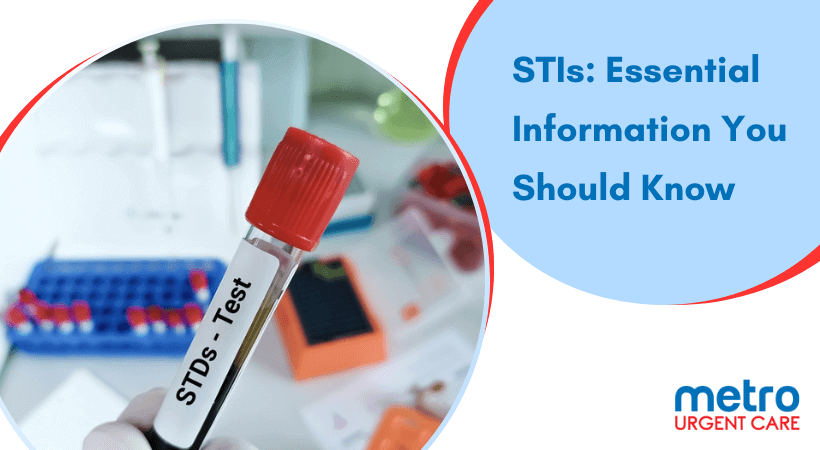


STDs (sexually transmitted diseases) and STIs (sexually transmitted infections) are a series of infections that are passed from one person to another through sexual contact. These infections can affect both men and women, causing severe health problems if left untreated. According to the CDC, 1 in 5 people in the U.S. has an STI, indicating the widespread prevalence of these infections. STIs are transmitted through sexual contact and pose a significant public health concern. Therefore, increased awareness, education, and preventive measures, such as regular screening and responsible sexual behavior, are urgently needed to combat their spread and protect individuals and communities.
In this article, we'll cover all the essential information you need to know about STDs, including what they are, the types of STIs, the common signs and symptoms, what causes them, how they're diagnosed, and how to prevent them.
STDs are infections that are transmitted sexually from one person to another. The contact that could result in the receiving of these infections includes vaginal, anal, and oral. Anyone sexually active can contract an STD, regardless of age, gender, or sexual orientation. It is recommended that everyone who is sexually active gets tested for STDs regularly, even if they don't show any symptoms. This is because many STDs can be asymptomatic but could still cause serious health problems if left untreated.
There are many types of STDs, including bacterial, viral, and parasitic infections. Some of the most common cases are as follows:
The signs and symptoms of STDs can vary depending on the type of infection. Some common symptoms of STDs include:
It's important to note that many STDs can be asymptomatic, further proving why regular testing is so important.
STDs are caused by bacteria, viruses, or parasites that are transmitted from person to person during sexual contact. STDs can be passed by vaginal, anal, or oral means, as well as through skin-to-skin contact with the infected area.
Using condoms and other physical types of protection during sexual activities can help to reduce the risk of contracting an STD, but it is not foolproof. Condoms can break or slip, and some STDs can be transmitted through simple skin-to-skin contact with the infected area. Regular testing is the only way to know if you have an STD, and early detection and treatment are key for preventing serious health problems.
STDs can be diagnosed through a variety of methods, including:
Sexually transmitted infections (STIs) are caused by bacteria, viruses, or parasites that can be transmitted through sexual contact. Risk factors for contracting STIs include:
The most common risk factor for STIs. Having sex without a condom increases your risk of contracting an STI.
Engaging in sexual relations with multiple partners increases the risk of contracting an STI. The more sexual partners an individual had within a short time frame, the greater the risk for STI.
If you have had an STI in the past, you are at increased risk of contracting another one.
Substance abuse can lead to impaired judgment that could result in risky sexual behavior, further increasing the risk of STIs.
When individuals have sex at a younger age, there is an increased risk of contracting STIs.
If you think you may have STI, it is crucial to see a doctor as soon as possible. Some STIs can cause serious health problems if left untreated. You should consult a doctor if you are experiencing any of the following:
Some prevention tips to avoid STIs are listed below:
Looking for reliable STI testing and treatment near you? Look no further than Metro Urgent Care. Our experienced medical team provides confidential and comprehensive STI services in a comfortable, judgment-free environment. Fear or embarrassment do not need to serve as an obstacle when taking control of your sexual health. Visit us at Metro Urgent Care walk-in clinic in Chicago, IL, today for the care you need and the peace of mind you deserve. Contact us now to schedule an appointment or walk-in during our convenient hours.